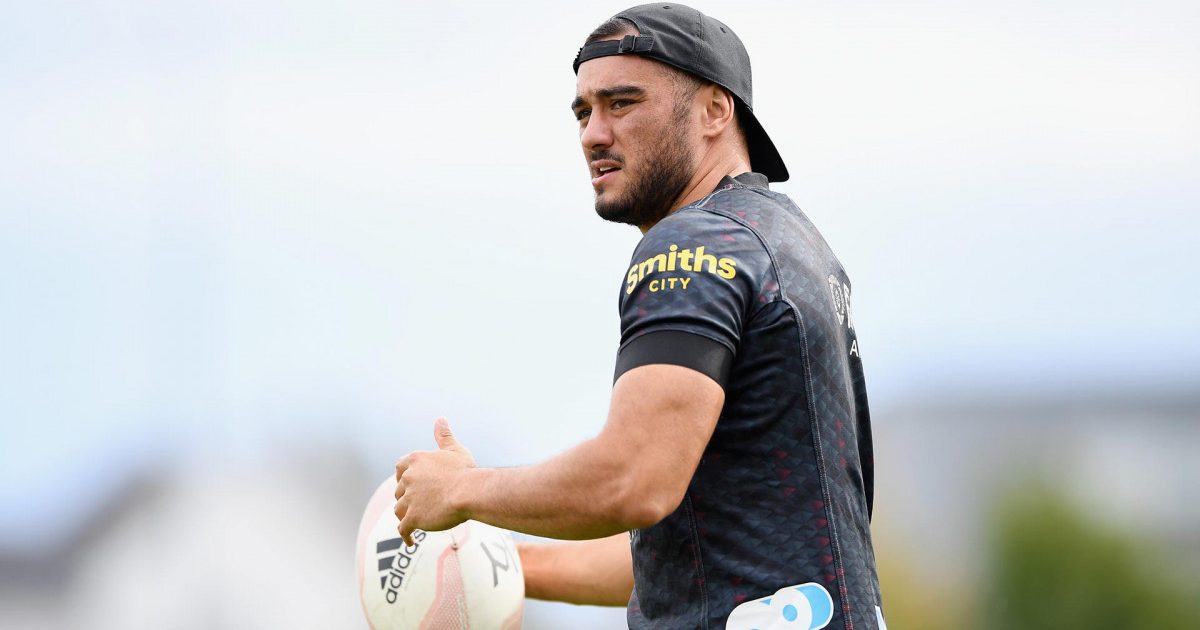'I feel it does slow down the game': Super Rugby Aotearoa star hits out at captain's referral law

Crusaders halfback Bryn Hall has called into question the new captain’s referral law adaptation that has been implemented in Super Rugby Aotearoa this season.
The captain’s referral, one of two new law innovations introduced to the New Zealand version of Super Rugby this year, allows team captains to challenge the referee’s decisions on certain plays at various stages throughout the match.
Throughout the first 75 minutes of each match, a captain can use their referral regarding a decision, or non-decision, relating to an infringement in the build-up to a try or foul play. In the final five minutes of a match, the challenge can be activated for any decision.
Teams are given one captain’s referral, and if their challenge is successful, they keep that referral and can use it again later in the match, but if their challenge is unsuccessful, their referral is lost for the remainder of the match.
The new innovation has been used with mixed results throughout the season, but Hall has spoken out about the impact the captain’s referral system has on the pace of the game due to the additional stoppages it brings with it.
“I feel it does slow down the game a little bit, I reckon,” the 29-year-old said to ex-Blues hooker James Parsons about how Chiefs co-captain has used the captain’s referral system effectively this season while speaking on the Aotearoa Rugby Pod.
“The referrals are great, but there’s just so many things that happen, and fair play, they’re [Weber’s] great calls, but there’s so many things that are penalised [that you’d say], ‘Oh, that’s probably happened three or four times in the last 20 minutes’.
“It’s kind of just slowing down the game. [Crusaders captain] Scott Barrett brought up a pretty good point around there of there’s enough [stoppages] in games.”
When asked by Aotearoa Rugby Pod host Ross Karl whether he would get rid of the captain’s referral system entirely, Hall said he was undecided on the matter as he sees some benefits of the system.
However, the Maori All Blacks representative wondered if teams should be allowed to have more than one captain’s referral throughout the match.
“It’s tough,” he said. “I’m 50/50 on it, because they actually are penalties. I don’t know, just a change around how many times you can use it, maybe?”
While he didn’t share Hall’s scepticism around the law innovation, Karl said it was “weird” that a captain’s referral can only be activated for specific instances for the majority of the match but can then used for anything at the latter stages of the game.
“I don’t understand why it’s a different rule at the end of the game to what it is in the whole game,” he said.
“I think that creates a weird system. You have to have the same rules for an entire rugby game, not different rules for the end of it. That makes no sense to me.
“If something happens in the first minute, why is it any different to anything that happens in the 79th minute?”
There have been no indications as of yet as to whether the captain’s referral system will remain in place when the new professional competition involving the 10 New Zealand and Australian Super Rugby teams, Moana Pasifika and the Fijian Drua kicks off next year.
Hall and the Crusaders, meanwhile, will enjoy a bye this week before they host the Chiefs in the Super Rugby Aotearoa final at Orangetheory Stadium in Christchurch next Saturday.
Listen to the latest episode of the Aotearoa Rugby Pod:

























































